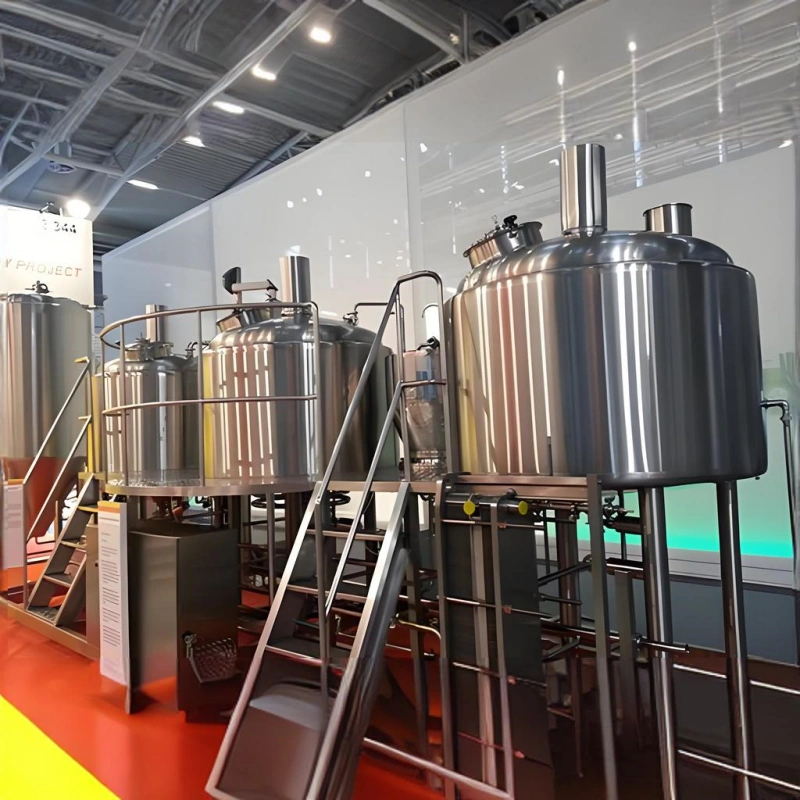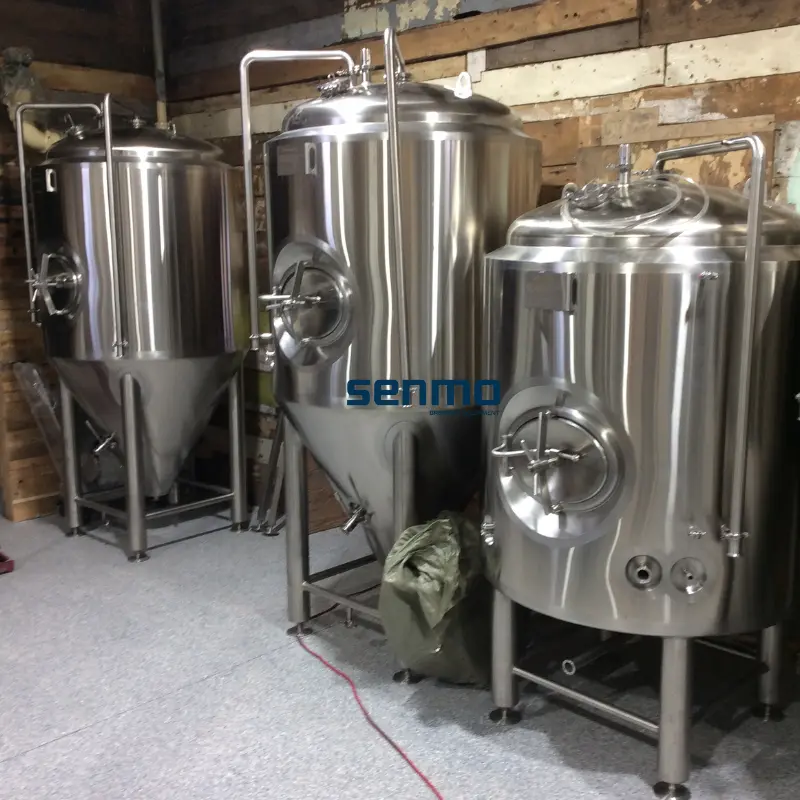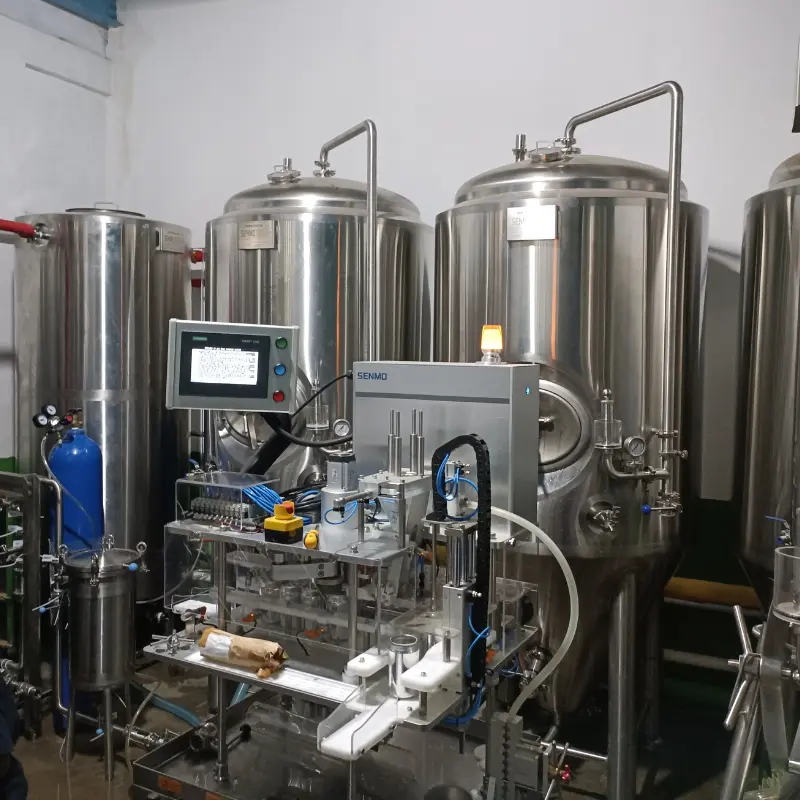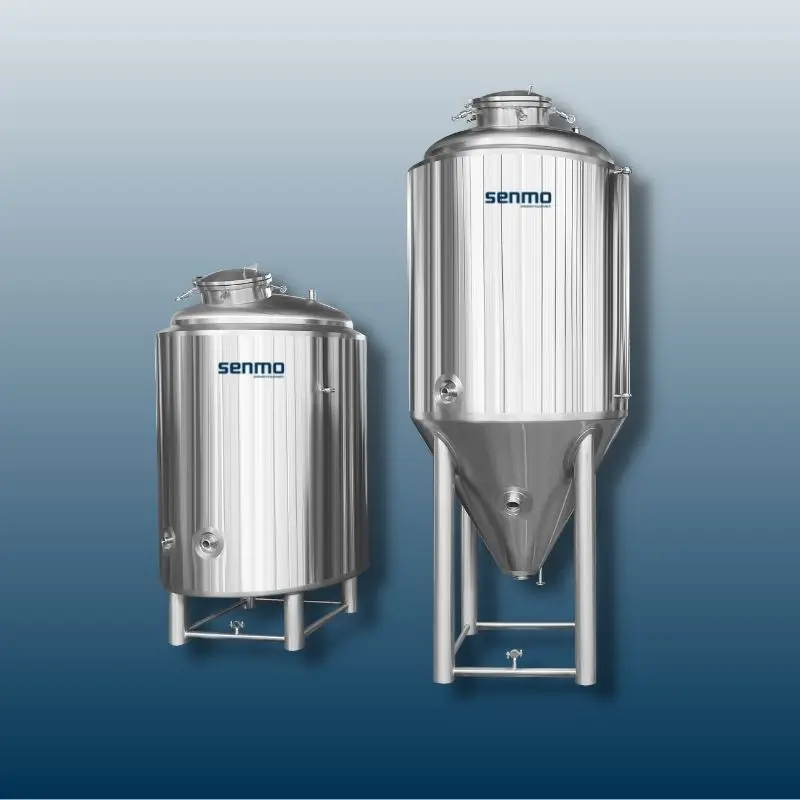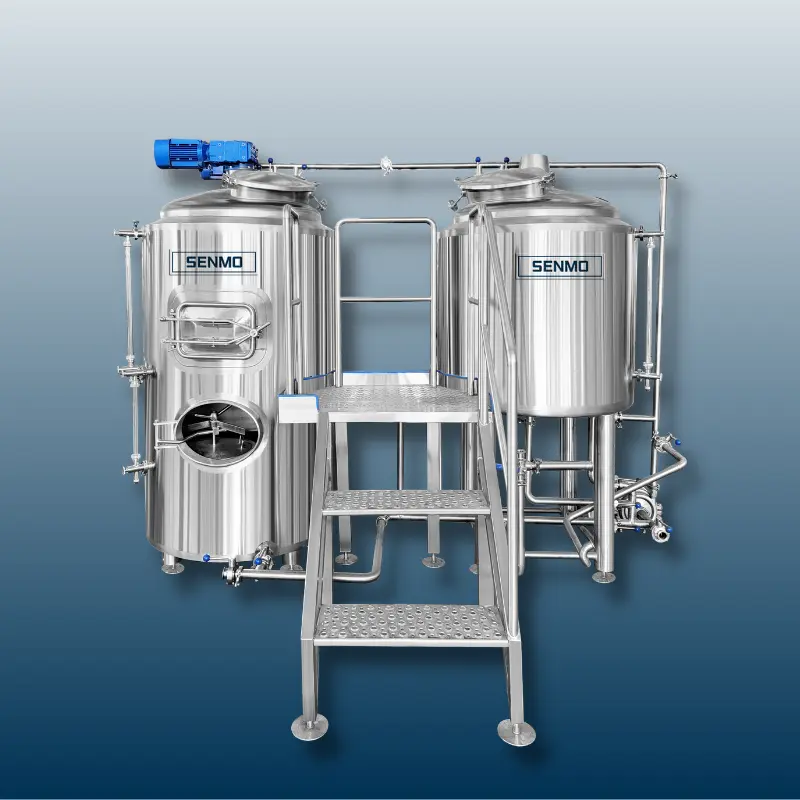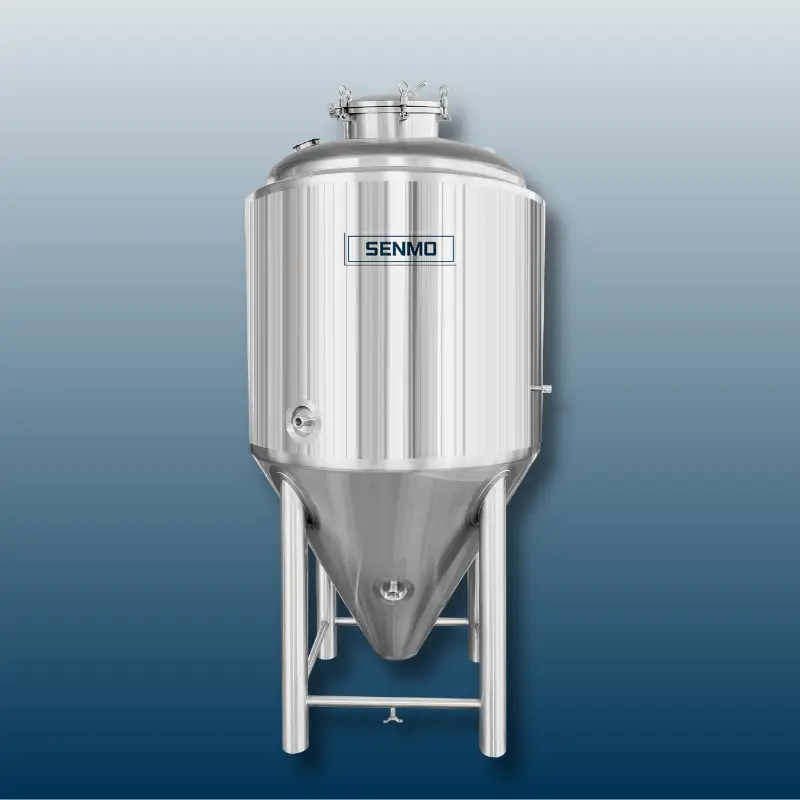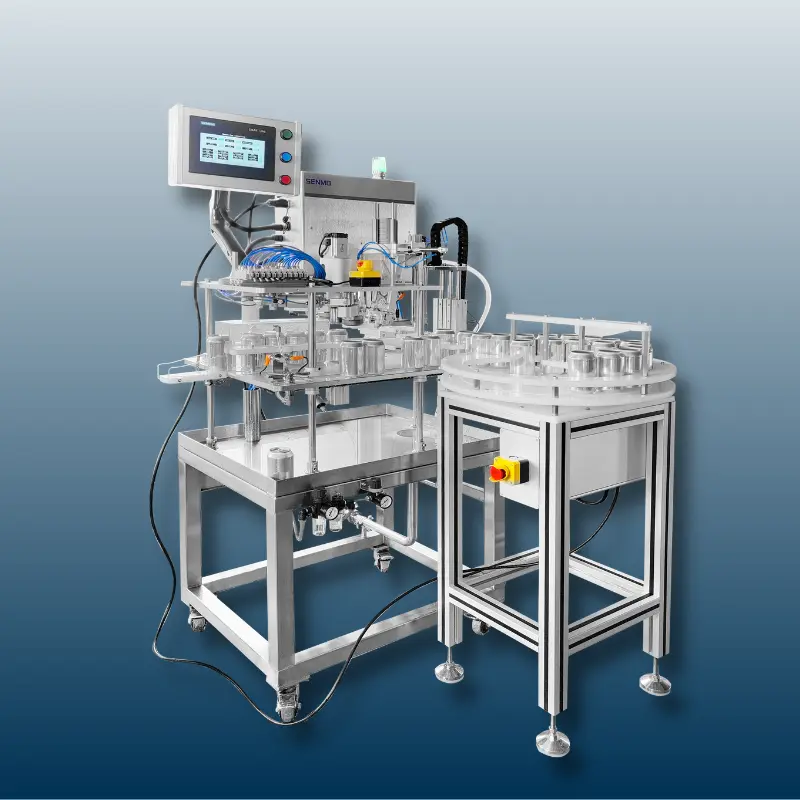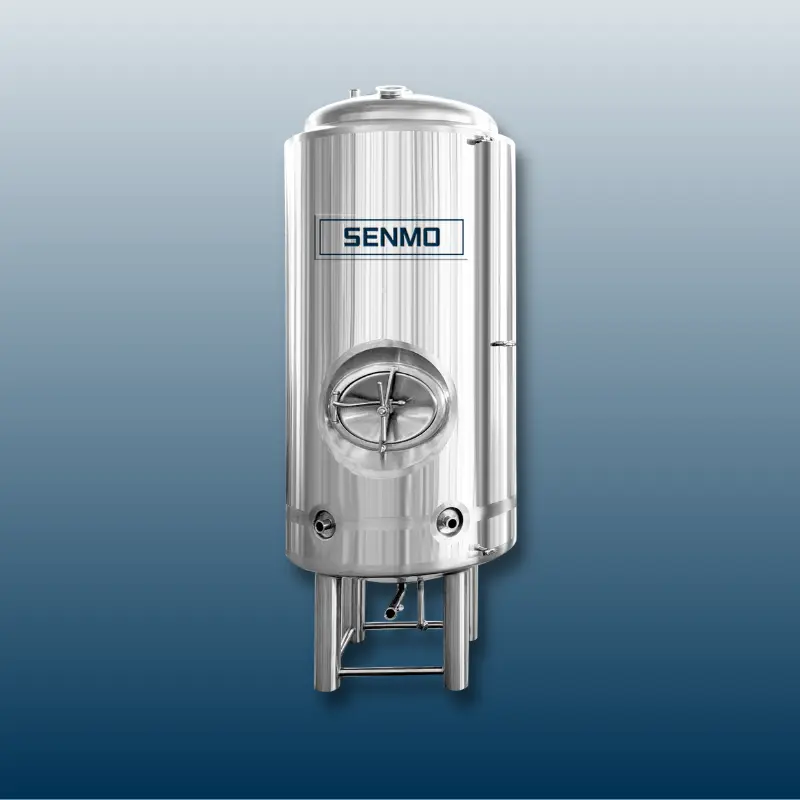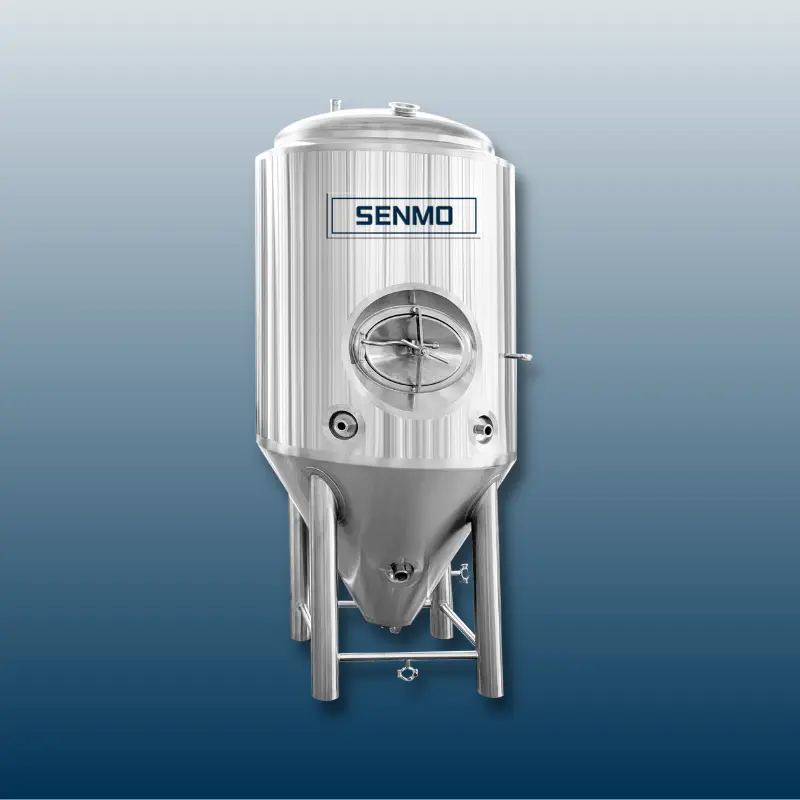Advantages and Disadvantages
Stainless Steel Beer Brewing Systems
Advantages
Durability and Strength: Stainless steel is renowned for its robustness. It resists dents, scratches, and other forms of physical damage, ensuring a long lifespan for the brewing system. This durability makes it ideal for both home brewers and commercial breweries.
Corrosion Resistance: Stainless steel is highly resistant to corrosion, which is essential for brewing. The acidic nature of beer can corrode other metals, but stainless steel withstands these conditions, maintaining the integrity of the brew.
Easy to Clean: The smooth, non-porous surface of stainless steel makes it easy to clean and sanitize. This is crucial in brewing, where any contamination can ruin an entire batch of beer.
Non-Reactive: Stainless steel does not react with the ingredients in beer. This non-reactivity ensures that the final product tastes exactly as intended, without any metallic aftertaste.
Disadvantages
Cost: Stainless steel brewing systems can be more expensive upfront compared to some other materials. However, their longevity often justifies the initial investment.
Heat Conductivity: Stainless steel is not the best conductor of heat. This can lead to uneven heating unless properly managed with a well-designed system.
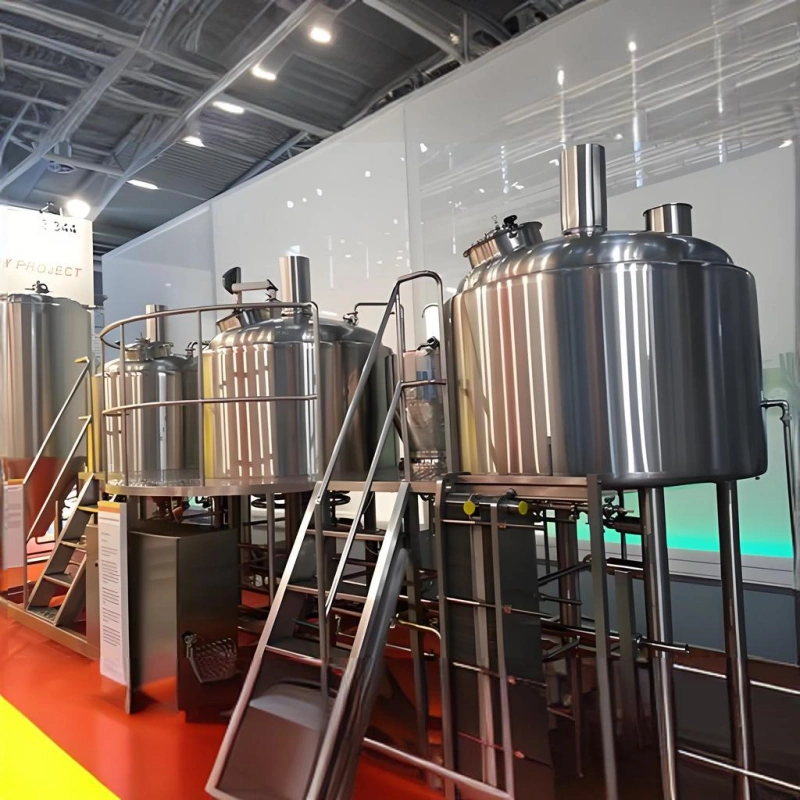
Copper Beer Brewing Systems
Advantages
Excellent Heat Conductivity: Copper is an outstanding conductor of heat, which allows for even and efficient heating. This can lead to more precise temperature control during the brewing process, which is vital for producing high-quality beer.
Aesthetic Appeal: Copper brewing systems are visually striking. Their classic, rustic appearance is often favored in traditional breweries and can add a touch of elegance to any brewing setup.
Natural Antimicrobial Properties: Copper has natural antimicrobial properties that can help reduce the risk of contamination during the brewing process.
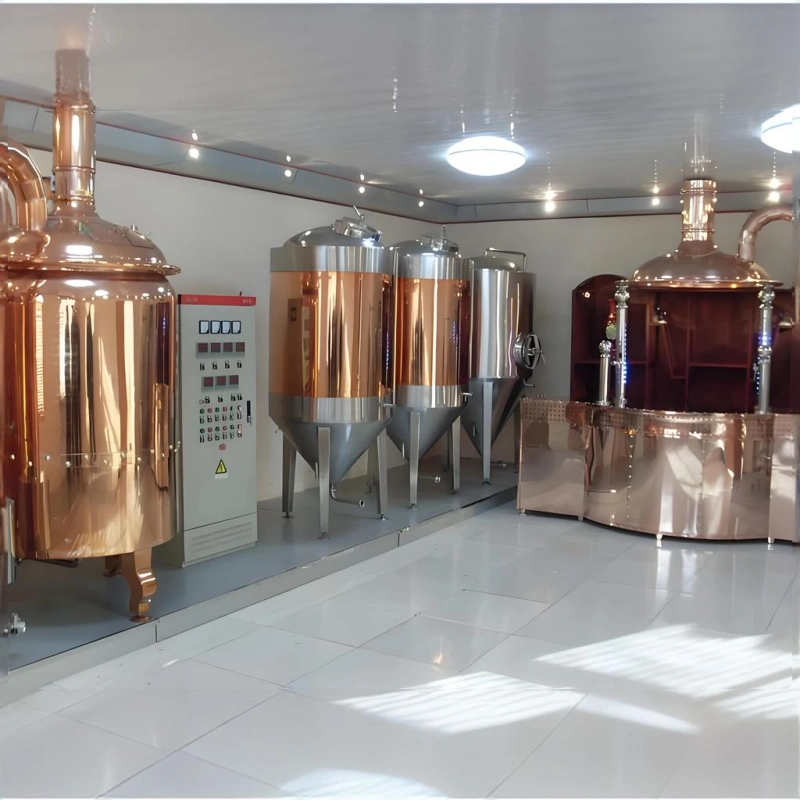
Disadvantages
Corrosion and Maintenance: Copper is prone to corrosion, especially when exposed to acidic environments like those found in brewing. This requires regular maintenance to prevent tarnishing and to keep the system in good working order.
Reactivity: Unlike stainless steel, copper can react with certain ingredients in the beer, potentially altering the flavor. This requires careful monitoring and management.
Cost and Availability: High-quality copper brewing systems can be expensive, and the material itself can be harder to source than stainless steel.
Differences Between Stainless Steel and Copper Beer Brewing Systems
Material Properties
Durability and Strength:
Stainless Steel: Highly durable and resistant to dents, scratches, and physical damage. It ensures a long lifespan and is ideal for both home and commercial brewers.
Copper: Softer and more prone to dents and scratches. Requires more careful handling and maintenance.
Corrosion Resistance:
Stainless Steel: Extremely resistant to corrosion, even when exposed to the acidic environment of brewing.
Copper: Prone to corrosion and tarnishing, especially in acidic environments. Requires regular maintenance to prevent degradation.
Reactivity:
Stainless Steel: Non-reactive, ensuring that the beer's flavor remains unaffected by the material of the brewing system.
Copper: Can react with certain ingredients in beer, potentially altering the flavor. Brewers need to manage this carefully.
Thermal Properties
Heat Conductivity:
Stainless Steel: Poor conductor of heat compared to copper. This can result in uneven heating if not properly managed with good system design.
Copper: Excellent conductor of heat, allowing for even and efficient heating. This can result in better temperature control during brewing.
Maintenance and Cleaning
Ease of Cleaning:
Stainless Steel: Smooth, non-porous surface that is easy to clean and sanitize. This is critical for preventing contamination in the brewing process.
Copper: Requires more intensive cleaning and maintenance to prevent corrosion and tarnishing. The antimicrobial properties of copper can help reduce contamination, but the surface needs regular upkeep.
Cost and Aesthetic
Cost:
Stainless Steel: Generally more expensive upfront but offers long-term value due to its durability and low maintenance.
Copper: Can be expensive due to the material cost and the need for regular maintenance. High-quality copper systems can be a significant investment.
Aesthetic Appeal:
Stainless Steel: Modern, sleek appearance that fits well in both professional and home brewing setups.
Copper: Classic, rustic look that adds an elegant, traditional touch to the brewing setup. Often preferred for its visual appeal in traditional breweries.
Practical Considerations
Availability:
Stainless Steel: Readily available and widely used in modern brewing systems.
Copper: Less common and can be harder to source, especially high-quality copper brewing systems.
Weight:
Stainless Steel: Typically heavier than copper systems of the same size, which can affect ease of handling and installation.
Copper: Lighter than stainless steel, which can be an advantage in certain brewing setups.
The choice between a stainless steel and copper beer brewing system depends on the brewer's specific needs and priorities. Stainless steel is favored for its durability, corrosion resistance, and ease of maintenance, making it suitable for both home and commercial brewing environments. Copper, with its excellent heat conductivity and aesthetic appeal, is ideal for brewers who prioritize precise temperature control and a traditional look, though it requires more maintenance.
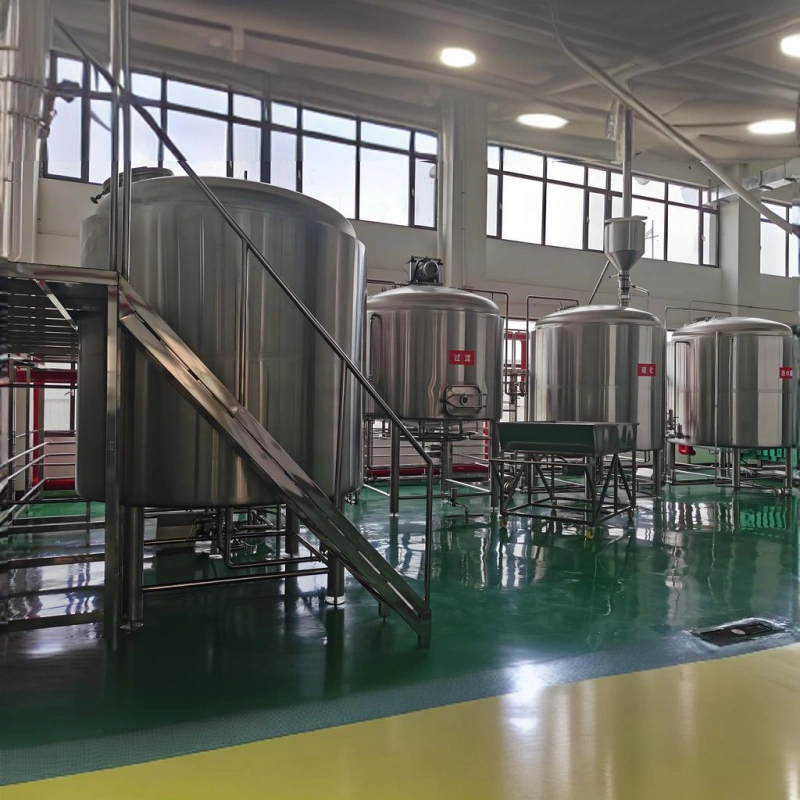
Choosing Between Stainless Steel and Copper Beer Brewing Systems: Scenarios and Considerations
Scenario 1: Commercial Breweries
Stainless Steel:
Durability and Longevity: Stainless steel's robustness and resistance to physical damage make it ideal for the high demands of commercial breweries.
Corrosion Resistance: The material's excellent resistance to corrosion ensures long-term reliability and reduced maintenance costs.
Ease of Cleaning: Quick and thorough cleaning is critical in a commercial setting to maintain hygiene standards and production efficiency.
Non-Reactive: Ensures consistent flavor profiles without any metallic aftertaste, crucial for large-scale production.
Copper:
Limited Use: While copper's heat conductivity can be beneficial for precise temperature control, its maintenance requirements and potential for reactivity with ingredients make it less practical for large-scale commercial use.
Scenario 2: Home Brewing Enthusiasts
Stainless Steel:
Low Maintenance: Ideal for home brewers who prefer a hassle-free brewing experience with minimal upkeep.
Durability: Can withstand occasional bumps and scratches that might occur in a home setup.
Cost: While initially more expensive, its long lifespan and ease of maintenance offer good value over time.
Copper:
Aesthetic Appeal: Home brewers who appreciate the visual appeal and traditional look of copper might prefer it despite the higher maintenance.
Heat Conductivity: Ideal for home brewers focused on achieving precise temperature control, particularly in smaller batch sizes where control is easier to manage.
Maintenance Willingness: Suitable for those who are willing to invest time in regular cleaning and upkeep to maintain the system's integrity and appearance.
Scenario 3: Brewpubs and Microbreweries
Stainless Steel:
Operational Efficiency: Durable and easy to clean, making it suitable for the frequent brewing cycles typical of brewpubs and microbreweries.
Consistency: Non-reactive nature ensures consistent flavors, which is important for maintaining a loyal customer base.
Compliance: Meets hygiene and safety standards, which are critical in a commercial food and beverage setting.
Copper:
Aesthetic and Marketing Appeal: The visual appeal of a copper brewing system can enhance the ambiance and customer experience, making it a marketing asset for brewpubs.
Showpiece: Often used as a showpiece in the brewing area where customers can see the brewing process, adding to the brewpub's charm and character.
Scenario 4: Experimental and Small Batch Brewing
Stainless Steel:
Versatility: Suitable for brewers who frequently experiment with different recipes and need a reliable, non-reactive system.
Durability: Can handle frequent use and varying brewing conditions without degradation.
Copper:
Precision: Ideal for small batch brewers who prioritize precise temperature control and are willing to maintain the equipment meticulously.
Aesthetic Value: Adds a touch of tradition and elegance to the brewing setup, which can be appealing for small batch and craft brewers.
Commercial Breweries will benefit more from stainless steel due to its durability, ease of maintenance, and consistent performance.
Home Brewing Enthusiasts might choose stainless steel for its low maintenance, or copper if they value aesthetic appeal and are willing to invest time in upkeep.
Brewpubs and Microbreweries could consider copper for its visual appeal and customer experience, while stainless steel would offer practical advantages in operational efficiency.
Experimental and Small Batch Brewers might lean towards copper for precise control or stainless steel for versatility and reliability.
The choice between a stainless steel and copper beer brewing system depends on several factors, including the scale of brewing, the brewer's maintenance preferences, aesthetic considerations, and specific brewing goals.By assessing these factors, brewers can select the brewing system that best aligns with their needs and enhances their brewing experience.
Conclusion
Choosing between a stainless steel and copper beer brewing system ultimately depends on the specific needs and preferences of the brewer. Stainless steel offers durability, corrosion resistance, and ease of maintenance, making it a solid choice for both home and commercial brewers. Copper, on the other hand, provides superior heat conductivity and a timeless aesthetic appeal, although it requires more diligent maintenance and care.
Both materials have their unique advantages and potential drawbacks. For those prioritizing durability and low maintenance, stainless steel is the clear winner. Conversely, for those who value heat efficiency and aesthetic charm, copper might be worth the extra effort. Ultimately, understanding these differences can help brewers select the system that best fits their brewing style and goals.
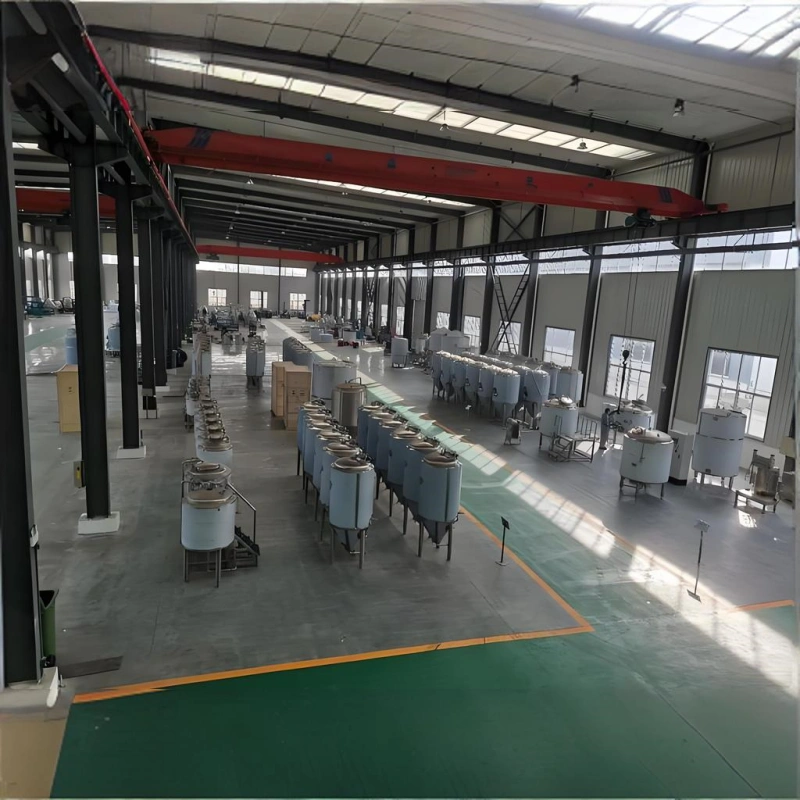
Company Introduction: Senmo Machinery
Senmo Machinery is a leading manufacturer specializing in the production of high-quality Stainless Steel and Copper Beer Brewing Systems. Based in China, we are dedicated to providing top-tier brewing equipment to both commercial and home brewers worldwide. With a commitment to excellence and innovation, Senmo Machinery has established itself as a trusted name in the brewing industry.
Our Products
Stainless Steel Beer Brewing Systems:
Durability and Longevity: Our stainless steel systems are built to withstand the rigorous demands of brewing, ensuring a long lifespan and reliable performance.
Corrosion Resistance: Made from premium stainless steel, our systems resist corrosion, maintaining their integrity and quality over time.
Ease of Maintenance: Designed for easy cleaning and sanitation, our stainless steel systems help brewers maintain high hygiene standards effortlessly.
Copper Beer Brewing Systems:
Superior Heat Conductivity: Our copper brewing systems offer exceptional heat conductivity, allowing for precise temperature control and efficient brewing.
Aesthetic Appeal: With their classic, rustic appearance, our copper systems add an element of elegance and tradition to any brewing setup.
Natural Antimicrobial Properties: Copper's natural antimicrobial properties help reduce the risk of contamination, ensuring a cleaner brewing process.
Why Choose Senmo Machinery?
Expertise and Innovation: With years of experience in the industry, our team continuously innovates to provide the most advanced and reliable brewing systems.
Quality Assurance: We adhere to strict quality control standards, ensuring that each product meets our high standards of excellence before it reaches our customers.
Customer-Centric Approach: We prioritize our customers' needs, offering personalized solutions and exceptional support throughout the purchasing and brewing process.
Global Reach: Our products are trusted by brewers around the world, from small home breweries to large commercial operations.
Our Commitment
At Senmo Machinery, we are committed to supporting the craft of brewing by providing equipment that enhances the brewing experience. Our mission is to empower brewers with the tools they need to produce exceptional beer, whether they are just starting out or are seasoned professionals.
Contact Us
To learn more about our products or to discuss your brewing equipment needs, please visit our website or contact our customer service team. At Senmo Machinery, we are always ready to assist you in finding the perfect brewing system for your unique requirements.
Shandong SENMO Machinery Co., Ltd.
No.1666 of Xinluo street,High tech zone,Jinan,Shandong
